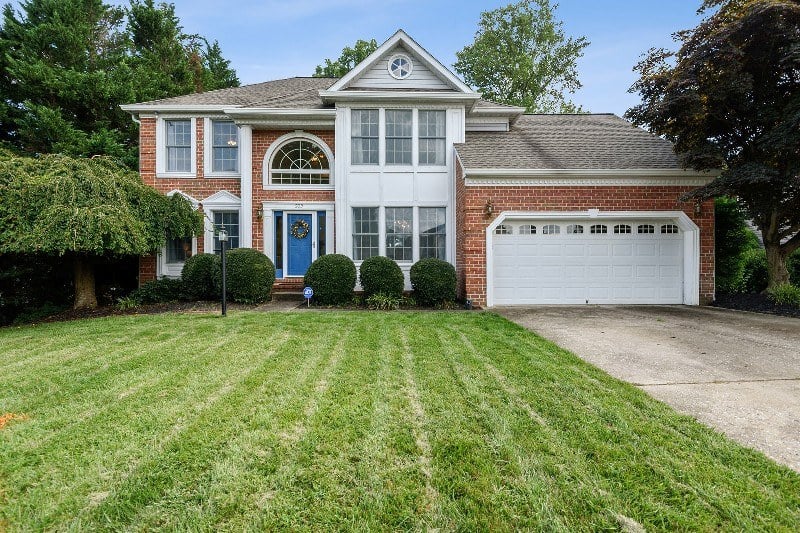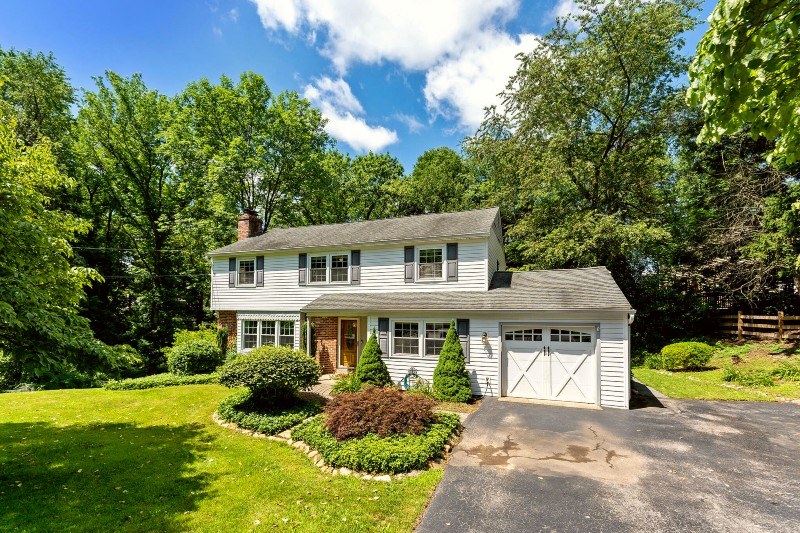
Buying a House in Delaware: Read This First
Posted on Sep 16, 2022
Delaware is a popular state to move to, especially for residents of nearby Pennsylvania, New...

Posted on Sep 16, 2022
Is it hard for a single person to buy a house? This question is often at the forefront of people’s minds when they begin to navigate this process alone. While couples buying homes are certainly the norm, plenty of people don’t fit the bill: in fact, single buyers make up about 30% of all homebuyers.
If you’re thinking about starting this journey, you’re not alone! But there are some things you should know first.
A lot of people wonder whether it makes sense to buy a home if they’re by themselves - there are certainly more costs to absorb on a single income. However, there are undeniable benefits of homeownership that are realized regardless of how many people contribute to the mortgage.
Homeownership builds equity, and this is why it remains an important life goal for many people regardless of their circumstances. You can build your equity so that you can upgrade to a better home later - you can also use your equity in the future, essentially “borrowing from yourself” to pay bills, make improvements to your home, pay off other debt, etc.
"It's worth it to buy a house when you're single because it’s your first step to building your generational wealth," explains Cyndi Perron, a Jacksonville-based Realtor with Houwzer.
According to CNBC, homeowners in the U.S. had a median net worth of $255,000, while renters had a net worth of just $6,300 as of 2019. A home is essentially a forced savings account - you pay off the mortgage every month, but it’s essentially like paying yourself. Homes also appreciate in value over time.
So yes, it’s definitely worth it to buy a house if you’re single - you just need to find the right house, and the right financing plan.
When you buy a home on your own, your finances need to be in order - and you need to be realistic about what you can buy. You likely won’t have the wiggle room that couples have because everything is being done on one person’s income.
First things first: let go of the idea that you need to put 20% down. The average first-time home buyer only puts 6% down! While having a higher down payment does lower your monthly payment, waiting too long to buy just keeps you on the rental market longer. It can be prohibitively difficult for a single person buying a house to save up enough money for a 20% down payment andclosing costs.
Let’s say you plan on buying a house with 10% down, have a good credit score, have $500/debt per month (car or student loans, etc) and make $70,000/year.
According to Mortgage Calculator, you can afford a house worth approximately $200,000, with a monthly payment of $1,500.
Considering that the average U.S. home now sells for $428,700, that might not seem like enough money for a home. However, there are several steps you can take to increase your borrowing power.
Many programs exist to help first-time homebuyers get into homes. These programs might provide you with down payment assistance in the form of a forgivable loan - if you meet the maximum income requirements, they might also provide you with funds to cover your closing costs (example: Pennsylvania's first-time home buyer grants and programs). There are grants available specifically for first-generation homeowners as well.
Your best bet for uncovering the loans you’re eligible for is to meet with a Realtor and mortgage advisor. Many grants are only available on the state and local level, so you’re not going to find them in general guides.
It can be tempting to do all the work of finding a home and figuring out your budget by yourself - independence tends to go hand in hand with buying a home on your own.
However, this is leaving free, expert advice on the table.
As the home buyer, you don’t pay the commission fees for your Realtor, and mortgage advisors typically provide their services so that you’ll choose their lender for your mortgage. In other words, you might as well use them as valuable resources - since they come with no extra cost!
"A Realtor can be a good resource because they can help you avoid overbuying, and they guide you through the process from getting a pre-approval to finding a home to getting to the closing table," notes Perron. "And they will talk to you about what your goals are in the future."
Houwzer client John Brubaker explains that as someone buying a house by himself, his agent was essential for connecting all the dots during the transaction.
"The biggest challenge was getting the seller to respond to my request for repairs... having an experienced Realtor helped with dealing with all the massive volumes of paperwork back and forth," explains Brubaker. "It meant having someone who could handle all the communications and direct me to the right people. There’s just a lot of parties involved - the mortgage lender, the seller, the seller’s agent, the assessor, the appraiser, etc."
Get started - talk to an agent
It’s easy to get lost in picture-perfect Zillow images of homes with subway tiling in the kitchen, vessel sinks, and dreamy vestibules. But realistically, your first-home budget may need to reign in a lot of your “wants” and settle at your absolute “needs.”
Remember, this is a starter home for you. Many people are able to buy their dream homes once they build up equity in their starter homes. Even if your house is more humble than Better Homes and Gardens-worthy, it’s still yours - not your landlords - and you’re still taking a pro-active step toward the home of your dreams (one day!).
Keep in mind that when you’re buying a home on a single income, you really need to think of your property as an investment. This may mean making some sacrifices in the short term, so that you are able to build longterm equity.
"First-time homebuyers especially often watch too much HGTV, and they think that’s what they 'have to' have. It’s hard for them to reconcile that what they think they have to have, and what they can really afford to have, are usually two different things," explains Perron.
Smaller homes, older homes, and homes that are a little further away from the heart of cities tend to be more affordable to start with. "You know, it’s never your last home. Your first home is just your first home," says Perron.
.jpg?width=720&height=480&name=old_kitchen-Jul-11-2023-09-27-13-7411-PM%20(2).jpg)
As someone buying a house while single, you won’t necessarily have the safety net that a couple working from two incomes has. You might need to use a significant amount of your liquid cash as your down payment. If your HVAC system breaks down and you need to replace it for $4,000, or your basement floods and you have $5,000 worth of damage, you might find it especially difficult to cover these costs.
Insurance and warranties are your friend in this instance, and you’ll want to do your research because not all offers are equal. Don’t just go for the most economical option, or you might be left high and try when an actual problem occurs.
Home insurance is required if you’re paying for your home with a mortgage, and it typically covers damage and theft. So if your home is damaged by a hurricane, home insurance will usually cover the repairs. Make sure to closely examine what your insurance covers, though, because not all policies are alike. Some policies will specifically note that they do not cover flood damage, for example, and separate flood insurance is required to achieve full coverage.
As we covered in Are Home Warranties Worth It?, home warranties cover what home insurance does not, and they are typically an add-on policy that is not required by lenders. If something goes wrong with your major appliances, HVAC, the roof, etc., your home warranty can usually cover much of the cost (minus a nominal service charge).
Buying a home with someone else is complicated enough - doing it by yourself can be an especially intimidating process. By educating yourself on the process, though, and enlisting the help of an experienced Realtor who will advocate for and guide you, you'll come out the other side a proud homeowner.
"So far it's been worth it. I don’t have to follow apartment rules anymore. And even with everything included - HOA, interest, insurance, taxes, etc. - I’m getting double the size of my last apartment. And some of that monthly mortgage payment is going toward equity," says Brubaker. "In essence I’m paying less for housing now, once I subtract the equity."
"My advice for people is to not be afraid, and to do their research. It’s a huge commitment, but five years from now you’re going to be really glad you did it," advises Perron.
Subscribe to our newsletter to get essential real estate insights.

Posted on Sep 16, 2022
Delaware is a popular state to move to, especially for residents of nearby Pennsylvania, New...

Posted on Sep 16, 2022
According to Rocket Mortgage, first-time home buyers live in their homes for an average of 11 years...

Posted on Sep 16, 2022
Considering how hot the current housing market is, it’s no surprise that plenty of sellers are...